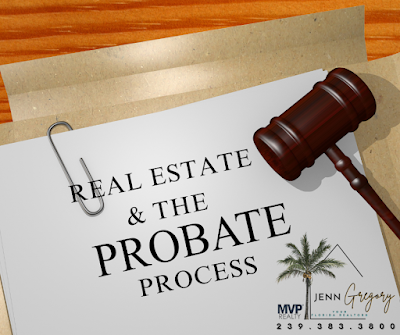Real estate and the probate process are often interconnected when a property is part of an estate that goes through probate. Probate is the legal process by which a deceased person's assets, including real estate, are distributed to heirs and beneficiaries or resolved in accordance with their will or state laws if there is no will (intestate).
Here's how real estate is typically handled during the probate process:
Inventory and Appraisal: As part of the probate process, the executor or personal representative of the estate is responsible for creating an inventory of the deceased person's assets, which includes any real estate. This involves identifying and documenting the property and obtaining an appraisal or valuation to determine its worth.
Notification and Creditors' Claims: The executor must notify creditors and potential claimants about the probate proceedings. This provides an opportunity for creditors to file claims against the estate, including any outstanding mortgages, liens, or other debts related to the real estate.
Property Management: If the property is vacant or needs to be maintained during the probate process, the executor may be responsible for managing it. This can involve tasks such as securing the property, paying property taxes, insurance, and utilities, and addressing any necessary repairs or maintenance.
Sale of Real Estate: In some cases, the estate may need to sell the real estate to pay off debts, distribute assets, or fulfill the wishes outlined in the will. The executor or personal representative is typically authorized to sell the property on behalf of the estate. The sale process involves listing the property, negotiating offers, and obtaining court approval, if required.
Distribution of Real Estate: If the deceased person's will specifies how the real estate should be distributed, the executor will work to fulfill those instructions. This may involve transferring the property's title to the designated beneficiaries. However, if there is no will or the will does not address the real estate, state intestate laws will dictate how the property is distributed among the heirs.
Clearing Title: Part of the probate process involves ensuring that the title to the property is clear and free from any liens or other encumbrances. This may require resolving outstanding debts, paying off mortgages or liens, and obtaining a new title in the name of the new owner(s) if the property is transferred.
It's important to note that the probate process and real estate laws can vary by jurisdiction, so it's advisable to consult with an attorney or legal professional experienced in probate and real estate matters to ensure compliance with local regulations and navigate the complexities of the process effectively.





No comments:
Post a Comment